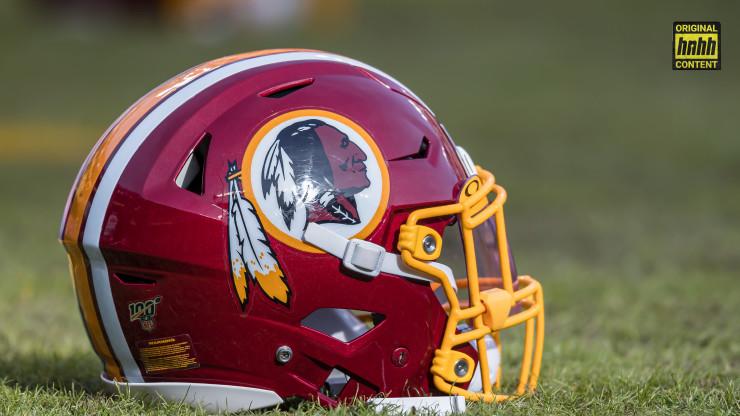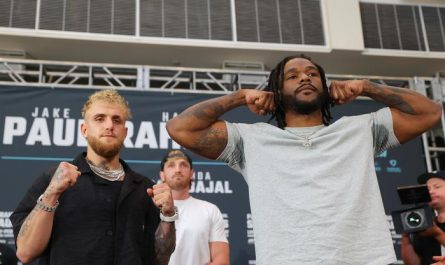With Washington on the verge of changing its name, it’s about time we talk about all of the other racist nicknames throughout professional sports.
We are living in unprecedented times for numerous reasons. Perhaps the most obvious is the Coronavirus, which has ultimately forced people to stay at home and come up with new ways to live their lives without harming others. On the other side of the equation, we have the long overdue unified fights against racial injustice and police brutality. While the virus and race relations may seem like two completely different issues, they are intrinsically linked due to the fact the black community has been hit the hardest by COVID-19. Needless to say, people are fed up, and there has been an increased effort to fight for what is ultimately right.
These battles have etched their way into the halls of sports stadiums and arenas all around the world. One would just have to look towards the NFL to see what we mean. This past week, it was revealed that the Washington NFL team will review its nickname, with some reporters claiming a change is actually inevitable. All of this was triggered after Nike removed the team’s merch from its website, while the team’s arena sponsor FedEx, threatened to revoke its naming rights.
Now if you know anything about Washington and its owner Dan Snyder, you would be aware of the fact that he has been ducking a name change for quite some time. At this point, you may be wondering why we refuse to use the name. Well, simply put, it’s extremely racist. The Washington nickname was a slur used hundreds of years ago to refer to Native Americans. While some will argue that Native Americans actually called themselves this word, historians are also quick to point out that the term was coined to refer to the bloody scalp of Native Americans who were killed as a bounty. Take all of these facts into consideration and you quickly come to realize why a change is not just a recommendation, but a crucial and necessary step towards reconciliation.

Tom Pennington/Getty Images
Conservatives and those who generally oppose the name change typically cite a study conducted by the Washington Post back in 2016 which surveyed 500 Native Americans. Nine out of 10 people said they were not offended, which led to Snyder’s original dismissal of the demands. However, many Native American scholars found this data to be cherrypicked. A new study from this year ultimately proved that the majority of Native American respondents were, indeed, offended by the nickname of not just Washington, but other teams as well. This UC Berkeley survey polled 1000 people across all 50 states and 148 tribes. In the end, 57 percent of those who answered said they had an issue with the moniker. Throw public opinion and advertiser dollars into the mix, and it’s clear why Snyder feels as though now is the time to finally do what he should have done years ago.
While Snyder and the NFL’s perceived efforts are all well and good, it’s important to note that these changes shouldn’t just stop at Washington. Snyder’s team is absolutely the most egregious example of disrespect towards Native Americans in both professional and college sports, however, that doesn’t mean Washington is the only team with offensive nomenclature and insignias. If we’re staying in Football, let’s look at the Kansas City Chiefs. Sure, on the surface, Chief isn’t exactly a racist term, although the team hasn’t spun it in the most positive of ways. For instance, the Chiefs play at Arrowhead Stadium and their logo is in the shape of, you guessed it, an arrowhead. Oh, and not to mention the fans do the ridiculous and offensive “tomahawk chop” as a rallying cry. All of this to say, the use of the “Chiefs” name has always been more about cultural appropriation and mockery, than it has ever been about honoring Native Americans.
The same can be said about team names like the Chicago Blackhawks, Atlanta Braves, San Diego State Aztecs, and of course, who can forget the Cleveland Indians who are infamous for their “Chief Wahoo” mascot. All of these franchises have used highly-stereotyped representations of Native American people, at some point in their histories. Some of these teams still do it, such as the Blackhawks, who have a pretty striking logo. When presented with arguments for changing their names, the counter-arguments always contain the same regurgitated talking points. “Native Americans aren’t actually offended,” and “these names are actually honoring Native American culture.” If this were true: A) the data would show otherwise and B) these teams would actually collaborate with leaders in Native American communities to make sure they are represented accurately, fairly, and not as a hyper-racialized cartoon character.

Jonathan Daniel/Getty Images
If these points weren’t enough to convince you, we should probably also point out that these teams are based in America, which is stolen land, at the end of the day. Native Americans were killed at the hands of European settlers who took the land for themselves, ultimately creating the countries we have now. Even Canada is guilty of this which is a big reason why many are pushing for the Edmonton Eskimos of the CFL to change their name as well. According to a University College London study, 90 percent of the Native American population was killed upon Christopher Columbus’ arrival to America. With this in mind, it isn’t a stretch to claim that using Native American culture as your sports logo or mascot is downright disrespectful. These re-appropriations of Native American culture do absolutely nothing except reinforce negative stereotypes and a culture of colonialism, as well as white supremacy.
These changes may take a long time and they may not be guaranteed but that doesn’t make them any less worthy of our attention. Sure, these names are tradition, but sometimes, you have to sit back and really assess which traditions are worthy of continuation. To some, it may just be a logo but to others, it’s a reminder of America’s horrific treatment of Native Americans, and the pain that comes with it.
With Washington on the verge of changing its name, it’s about time we talk about all of the other racist nicknames throughout professional sports.
We are living in unprecedented times for numerous reasons. Perhaps the most obvious is the Coronavirus, which has ultimately forced people to stay at home and come up with new ways to live their lives without harming others. On the other side of the equation, we have the long overdue unified fights against racial injustice and police brutality. While the virus and race relations may seem like two completely different issues, they are intrinsically linked due to the fact the black community has been hit the hardest by COVID-19. Needless to say, people are fed up, and there has been an increased effort to fight for what is ultimately right.
These battles have etched their way into the halls of sports stadiums and arenas all around the world. One would just have to look towards the NFL to see what we mean. This past week, it was revealed that the Washington NFL team will review its nickname, with some reporters claiming a change is actually inevitable. All of this was triggered after Nike removed the team’s merch from its website, while the team’s arena sponsor FedEx, threatened to revoke its naming rights.
Now if you know anything about Washington and its owner Dan Snyder, you would be aware of the fact that he has been ducking a name change for quite some time. At this point, you may be wondering why we refuse to use the name. Well, simply put, it’s extremely racist. The Washington nickname was a slur used hundreds of years ago to refer to Native Americans. While some will argue that Native Americans actually called themselves this word, historians are also quick to point out that the term was coined to refer to the bloody scalp of Native Americans who were killed as a bounty. Take all of these facts into consideration and you quickly come to realize why a change is not just a recommendation, but a crucial and necessary step towards reconciliation.

Tom Pennington/Getty Images
Conservatives and those who generally oppose the name change typically cite a study conducted by the Washington Post back in 2016 which surveyed 500 Native Americans. Nine out of 10 people said they were not offended, which led to Snyder’s original dismissal of the demands. However, many Native American scholars found this data to be cherrypicked. A new study from this year ultimately proved that the majority of Native American respondents were, indeed, offended by the nickname of not just Washington, but other teams as well. This UC Berkeley survey polled 1000 people across all 50 states and 148 tribes. In the end, 57 percent of those who answered said they had an issue with the moniker. Throw public opinion and advertiser dollars into the mix, and it’s clear why Snyder feels as though now is the time to finally do what he should have done years ago.
While Snyder and the NFL’s perceived efforts are all well and good, it’s important to note that these changes shouldn’t just stop at Washington. Snyder’s team is absolutely the most egregious example of disrespect towards Native Americans in both professional and college sports, however, that doesn’t mean Washington is the only team with offensive nomenclature and insignias. If we’re staying in Football, let’s look at the Kansas City Chiefs. Sure, on the surface, Chief isn’t exactly a racist term, although the team hasn’t spun it in the most positive of ways. For instance, the Chiefs play at Arrowhead Stadium and their logo is in the shape of, you guessed it, an arrowhead. Oh, and not to mention the fans do the ridiculous and offensive “tomahawk chop” as a rallying cry. All of this to say, the use of the “Chiefs” name has always been more about cultural appropriation and mockery, than it has ever been about honoring Native Americans.
The same can be said about team names like the Chicago Blackhawks, Atlanta Braves, San Diego State Aztecs, and of course, who can forget the Cleveland Indians who are infamous for their “Chief Wahoo” mascot. All of these franchises have used highly-stereotyped representations of Native American people, at some point in their histories. Some of these teams still do it, such as the Blackhawks, who have a pretty striking logo. When presented with arguments for changing their names, the counter-arguments always contain the same regurgitated talking points. “Native Americans aren’t actually offended,” and “these names are actually honoring Native American culture.” If this were true: A) the data would show otherwise and B) these teams would actually collaborate with leaders in Native American communities to make sure they are represented accurately, fairly, and not as a hyper-racialized cartoon character.

Jonathan Daniel/Getty Images
If these points weren’t enough to convince you, we should probably also point out that these teams are based in America, which is stolen land, at the end of the day. Native Americans were killed at the hands of European settlers who took the land for themselves, ultimately creating the countries we have now. Even Canada is guilty of this which is a big reason why many are pushing for the Edmonton Eskimos of the CFL to change their name as well. According to a University College London study, 90 percent of the Native American population was killed upon Christopher Columbus’ arrival to America. With this in mind, it isn’t a stretch to claim that using Native American culture as your sports logo or mascot is downright disrespectful. These re-appropriations of Native American culture do absolutely nothing except reinforce negative stereotypes and a culture of colonialism, as well as white supremacy.
These changes may take a long time and they may not be guaranteed but that doesn’t make them any less worthy of our attention. Sure, these names are tradition, but sometimes, you have to sit back and really assess which traditions are worthy of continuation. To some, it may just be a logo but to others, it’s a reminder of America’s horrific treatment of Native Americans, and the pain that comes with it.





